
88 Writers on the Books They Loved in 2022
The Year in Reading From Contributors to Freeman’s
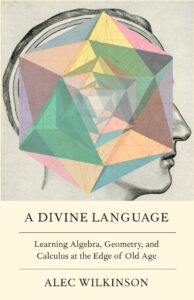
Alec Wilkinson, A Divine Language
There’s a breed of book that can serve as an antidote to what F. Scott Fitzgerald called “the 3 a.m. of the soul”, and the book this year that filled that time slot for me with wonder, awe, and beauty was Alec Wilkinson’s A Divine Language. It lives up to its title.
–Stuart Dybek, author of The Start of Something: The Selected Stories of Stuart Dybek
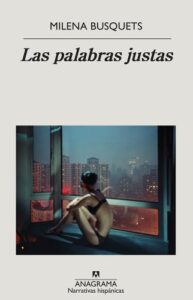
Milena Busquets, Las Palabras Justas
I loved Milena Busquets’ latest book Las Palabras Justas, which reads like a novel liberated from the novel form, the Spanish wilder little sister of Annie Ernaux; a fresh and fully-fleshed glimpse into the novel of ideas that is a woman’s mind.
–Pola Oloxoirac, author of Mona, translated by Adam Morris
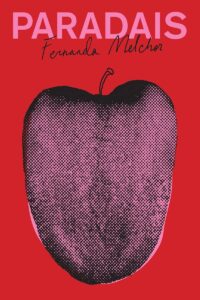
Fernanda Melchor, Paradais
Fernanda Melchor’s Paradais: There’s an element of Springsteen and Capote in Melchor’s novel about two boys—one cosseted, the other exposed—both messed up beyond their own shaky understanding of what claws at them. Melchor’s disturbing story of impending monstrosity is rooted in the real: grotesque income inequality, the inescapable miasma of the narco in Mexican society, youth already hollowed out by circumstances they were in no position to change.
But it’s also a searing fiction about the pain of living in a world absent of love and respect, where a smashed moral compass may be all there is to guide. The decaying of the soul that she evokes among the swamps and the gated community of her book is nearly tactile, and the novel’s reminder of the meanness of this world lands with an icy finality.
–Oscar Villalon is a writer and managing editor of Zyzzyva
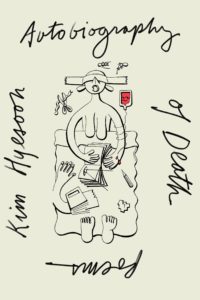
Kim Hyesoon, Autobiography of Death
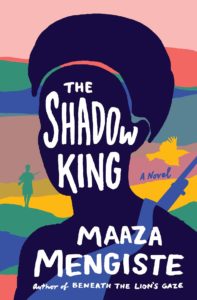
Maaza Mengiste, The Shadow King
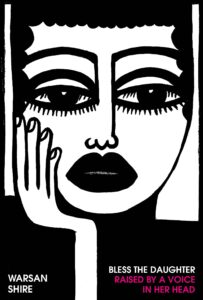
Warsan Shire, Blessed the Daughter Raised by a Voice in her Head
The books that marked my life in 2022:
Kim Hyesoon, Autobiography of Death: Death has never been this productive, this gory, this pig like, this seductive.
Maaza Mengiste, The Shadow King: History has never been told this intelligently, with such a striking resonance in the current political situation in Ethiopia.
Warsan Shire, Blessed the Daughter Raised by a Voice in her Head: Growing up in the a diaspora, in patriarchy, in the age of exploitation and resistance of black girlhood, has never been written this beautifully.
–Athena Farrokhzad, author of White Blight, translated by Jennifer Hayashida
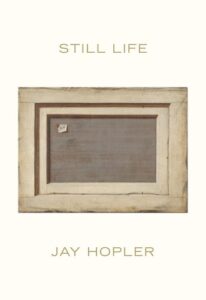
Jay Hopler, Still Life
I’ll be listening to Jay Hopler’s Still Life until my own life stills. Published by McSweeney’s just before Jay Hopler died this past June, Still Life is made of gut and wrench and humor and the desire to remain alive much longer than he knew he could, here on earth where he “loved his wife his wife his ocean was & his mountain range spent in blue gentian.” He’s jealous of us, the living. And this hastens me, when I look up from this book, toward being alive. What more could he do for a reader? He who “was born in mint-condition-in-original-packaging-action-figure-w/-kill-piggy-death-grip (collector’s edition)” and who “for a moment in rome he was: Jay Hopler.”
–Katie Ford, author of If You Have to Go: Poems
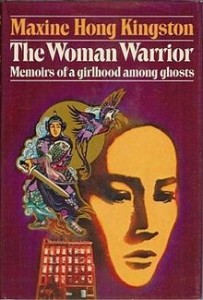
Maxine Hong Kingston, The Woman Warrior
Reading The Woman Warrior in 1975 was like the loudest thunderclap with the most blinding light, and flying through its charged air was the voice of Maxine Hong Kingston—history, lore, twisty wit, hallucination, the simple past of a Chinese immigrant family living in California. “A memoir of a girlhood among ghosts” read the subtitle—no memoirs to speak of then, so the word vibrated in a new way. I have always considered The Woman Warrior the book that wrenched the S from the dusty memoirs of (mostly) old men to crack open the genre that has become great in our time and claim for literature what hides within discretion or behind fear.
Reading about Kingston’s white tigers and no name women now, I felt again its swooping magic—a singular blend of story and reflection, imagination and dream, spectacle and myth bent into the shape of a telescope but also a kaleidoscope. Nearly 50 years on, along with other works by Kingston, it’s new from Library of America, its first volume by an Asian writer.
–Honor Moore, author of Our Revolution: A Mother and Daughter at Midcentury
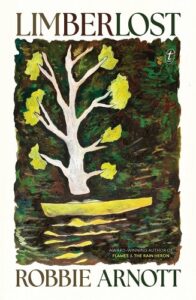
Robbie Arnott, Limberlost
For all sorts of reasons, 2022 had so far, for me, been a tough year for reading. Then in June, Atlantic sent an ARC of Robbie Arnott’s Limberlost.
I did what we do. Picked it up, opened it to the first page, scanned the opening sentences. Boom. I put it down. I already knew. Two things would happen. He’d fuck it up, and I wouldn’t forgive him; or it would be exceptional. This one, I told myself, I’ll read in one sitting. And I did, a Sunday. (24th July).
There’s a ‘thing’ in the book. To avoid spoilers, I’ll call it a thing. And there’s a passage on how ‘it became a marvelous thing, beautiful and impossible’ that ‘still filled the room, even though it was no longer in sight’. And so did Arnott’s story. For the first time in a very long while, I truly remembered why I need books.
–Cynan Jones, author of Stillicide

Shelley Wong, as she appears
as she appears by Shelley Wong
A shattered mirror scattered in a lush jungle
of desire & strobe-lights of oscillating selves — Wong
hands us an incredible, fierce & tender collection of lenses
where “ I scan the sand for signs of my shell.” Here,
a poetics of & for an emergent future.
–Juan Felipe Herrera, Poet Laureate of the United States, Emeritus
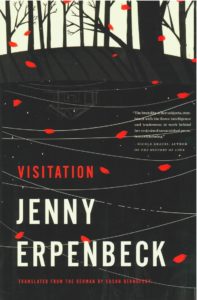
Jenny Erpenbeck, Visitation
I read Visitation by Jenny Erpenbeck twice—I gave the novel away more times. A novel about inhabiting place—a house on the bank of the Brandenburg Lake outside of Berlin—whose twelve different owners reflect Germany’s history from the nineteenth century to the GDR. Visitation is not a political novel. It is a haunting poetic novel about the importance of place and the consequences of its loss as the two words that make up the original German title suggest: Heimsuchung (searching for home). I am going to read Visitation again.
–Lily Tuck, author of Heathcliff Redux: A Novella and Stories
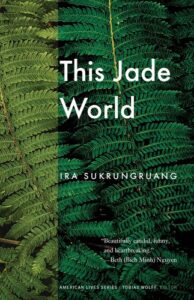
Ira Sukrungruang, This Jade World
I really enjoyed Ira Sukrungruang’s This Jade World, a new collection of personal essays about the end of his long marriage and his discovery in midlife of strangers and their strange beds, and a new sense of self, in the process. It’s also about reconnecting to your body after loss, finding your way past damaging stereotypes around Asian masculinity, and letting go of what you thought you needed to find what you might next need, as it were. And in the way of the best writing it is also about so much more.
–Alexander Chee, author of How to Write an Autobiographical Novel: Essays












